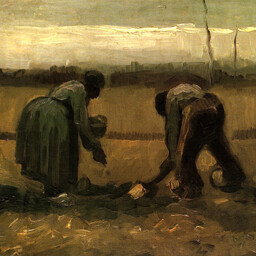In Estonia, there are many proverbs about work. For example, "work turned a monkey into a human." This demonstrates forced labor. There are also sayings that praise work, such as "work praises the doer."
Many proverbs come from peasants. For example, "work never ends" and "work is the fool's pastime." Work must be rewarded, as they say, "an empty sack cannot stand upright."
People are divided into three categories regarding work. Some work to live, others for self-fulfillment. The third group tries to avoid work. In Estonia, 69% of people work to live, while only 16% live to work.
In the past, work was seasonal. A lot of work was done in autumn, less in winter. Working hours were regulated in the 20th century. Before that, people worked long hours, for example, 11.5 hours a day.
Women's and men's wages were different. In 1875, a farmhand received over 15 rubles, while a maid received only 7.5 rubles. Today, the gap is smaller, but it remains a problem.
Today, work is diverse. People seek self-fulfillment. New trends include a shorter work week and artificial intelligence. A four-day work week has been successful in some companies. Artificial intelligence is changing many jobs, especially those with lower wages.

